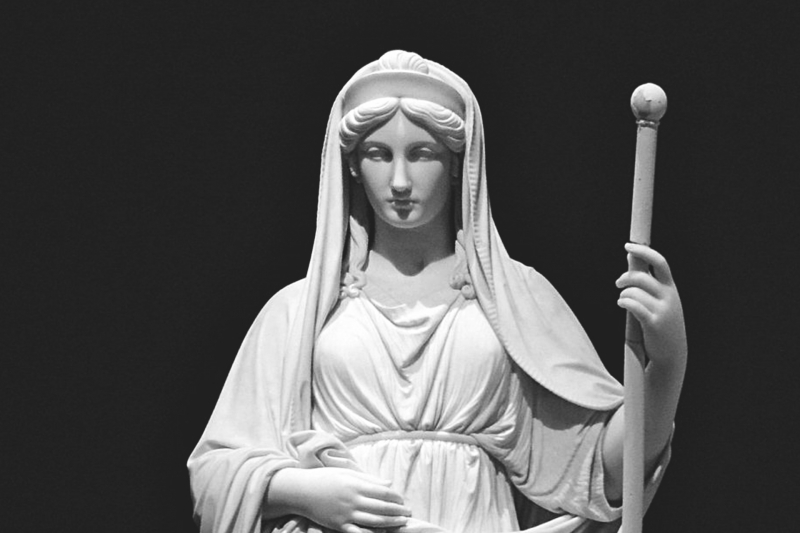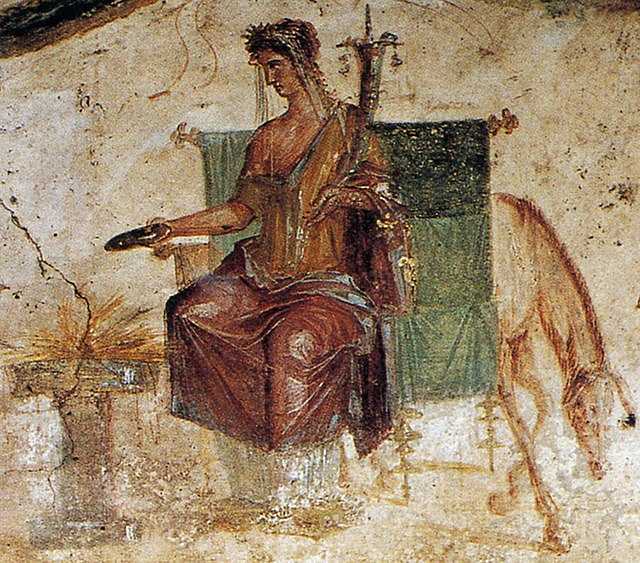Vesta

One of the most famous Roman goddesses we would like to introduce to you is Vesta. In Roman religion, Vesta is the virgin goddess of the hearth, home, and family. She was rarely shown in human form, preferring to be symbolized by the fire of her temple in the Forum Romanum. Only her priestesses, the Vestal Virgins, were allowed to enter her temple, where they guarded specific precious artifacts, prepared flour and sacred salt (mola salsa) for official sacrifices, and tended Vesta's sacred fire at the temple hearth. Their virginity was regarded to be important to Rome's survival; if found unchaste, they were punished by being buried alive. Vesta was regarded as the Roman people's guardian, and her festival, the Vestalia (7-15 June), was recognized as one of the most important Roman celebrations. During the Vestalia, privileged matrons traveled across the city barefoot to the temple, where they made food offerings. Vesta was so important in Roman religion that after the rise of Christianity, hers was one of the last non-Christian cults to remain functional until it was forcibly abolished in AD 391 by the Christian emperor Theodosius I.
The myths about Vesta and her priestesses were sparse; the most prominent were stories about a virgin priestess being miraculously impregnated by a phallus appearing in the flames of the holy hearth, the manifestation of the goddess combined with a male supernatural being. In some Roman myths, Romulus and Remus, as well as the generous king Servius Tullius, was conceived in this manner. Vesta was one of the Dii Consentes, a group of twelve of the most revered gods in the Roman pantheon. She was Saturn and Ops's daughter, and the sister of Jupiter, Neptune, Pluto, Juno, and Ceres. Hestia is her Greek equivalent.













